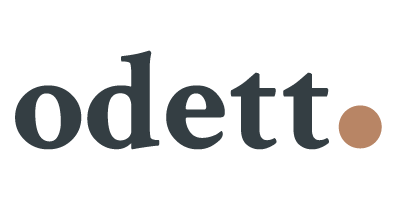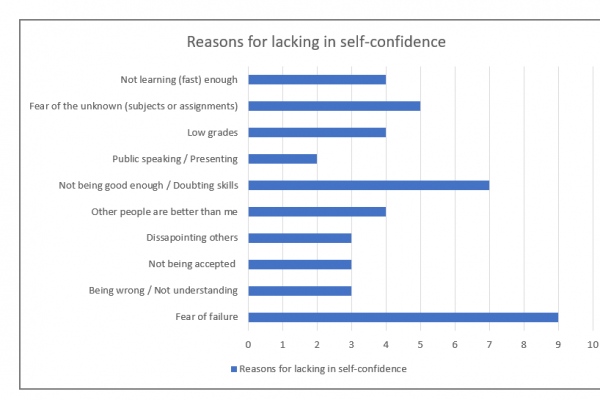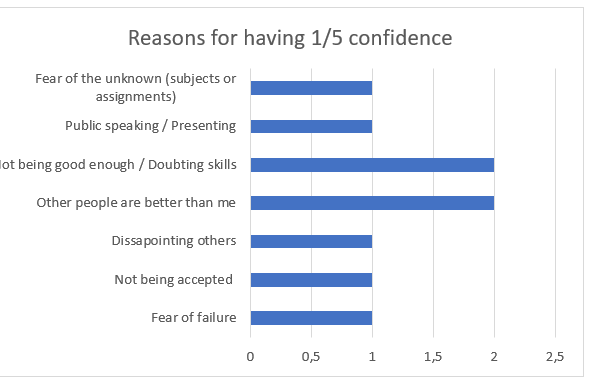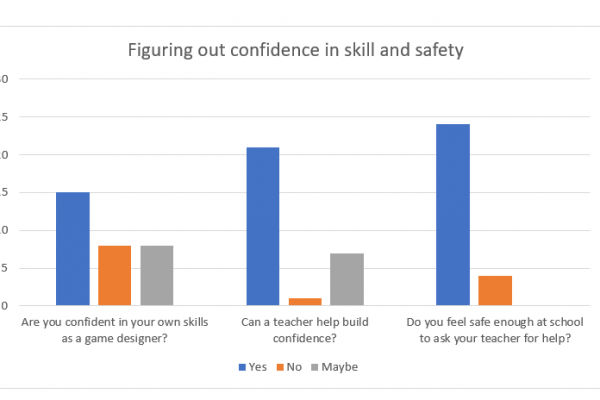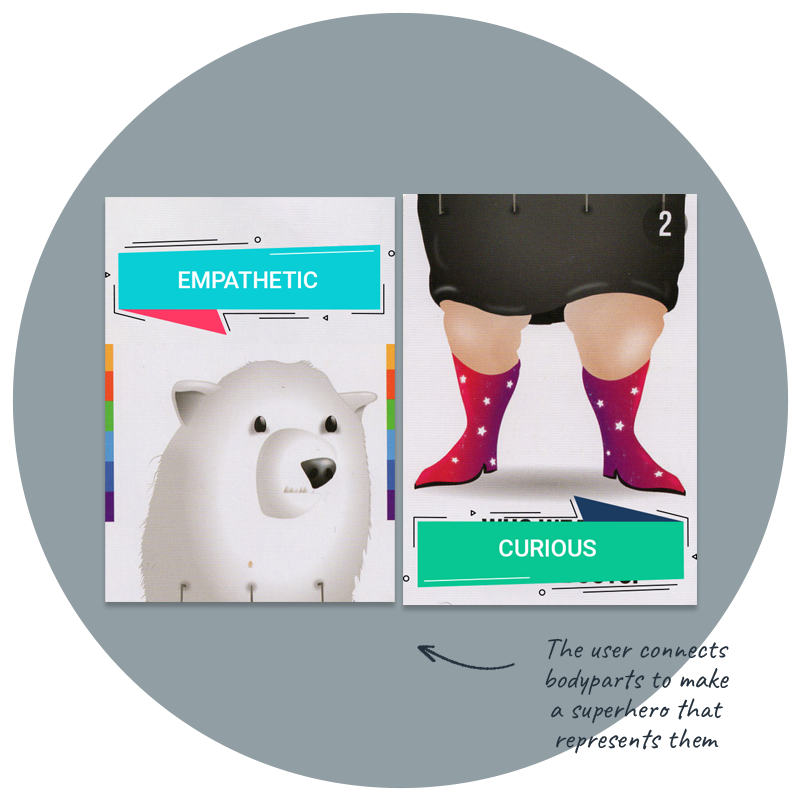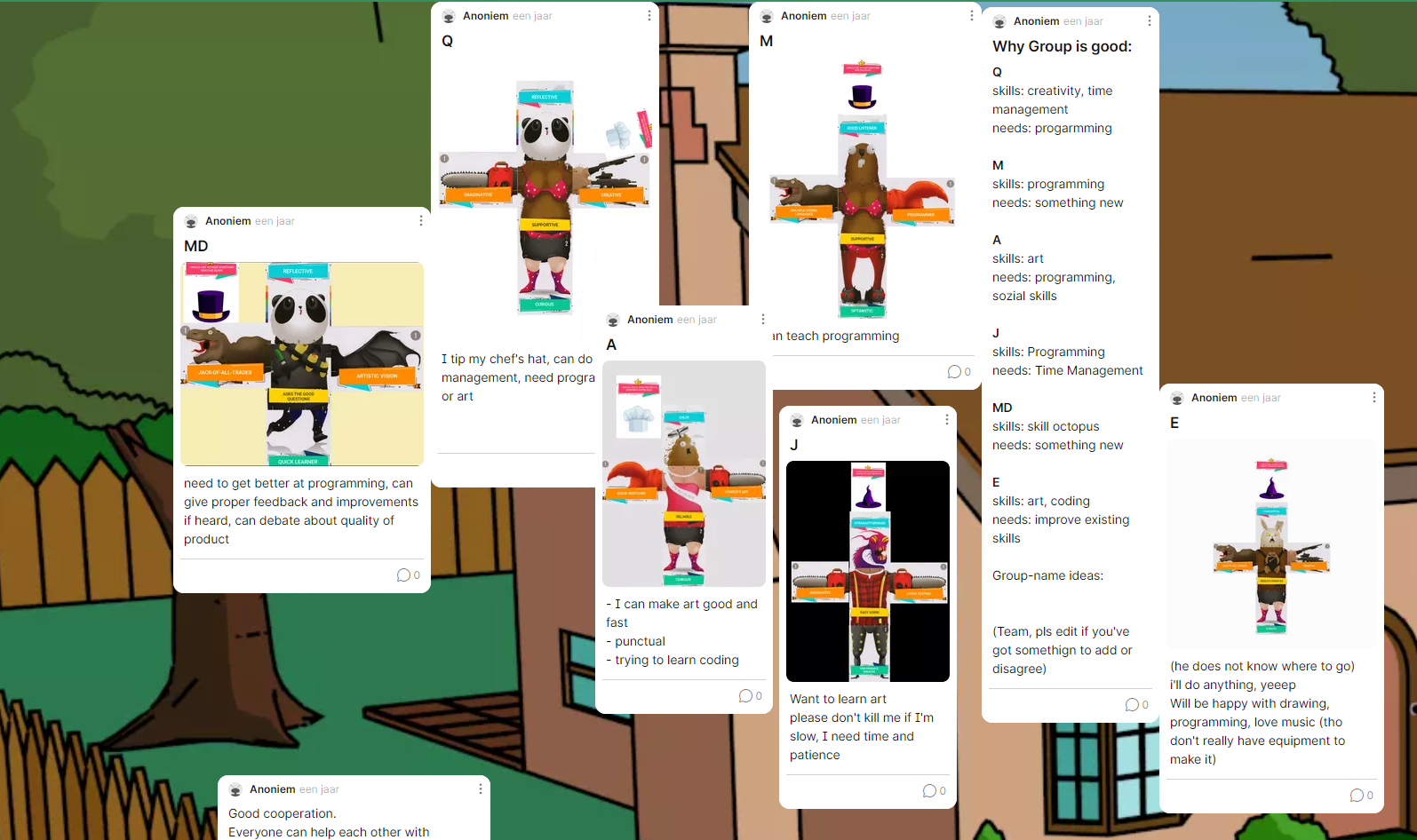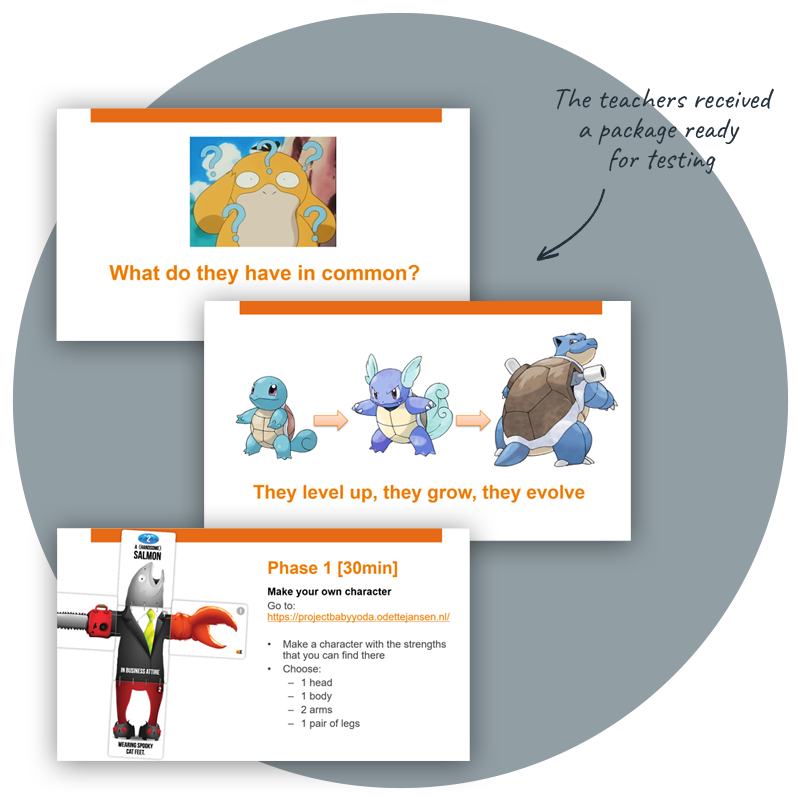Using games & cooperation to increase self-confidence
Project Baby Yoda is an educational card game that focuses on building self-confidence while playing. It allows the player to look at their strengths and build goals based on their strength. This project has been based on scientific research such as the growth mindset and learner agency. User testing was done and provided successful results in both usability and an increase in self-confidence.
